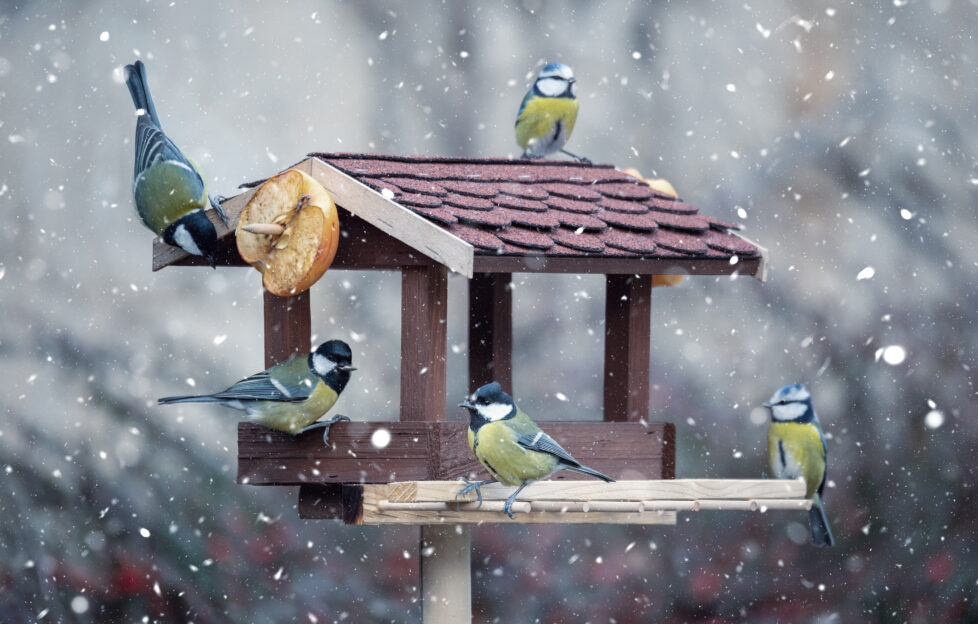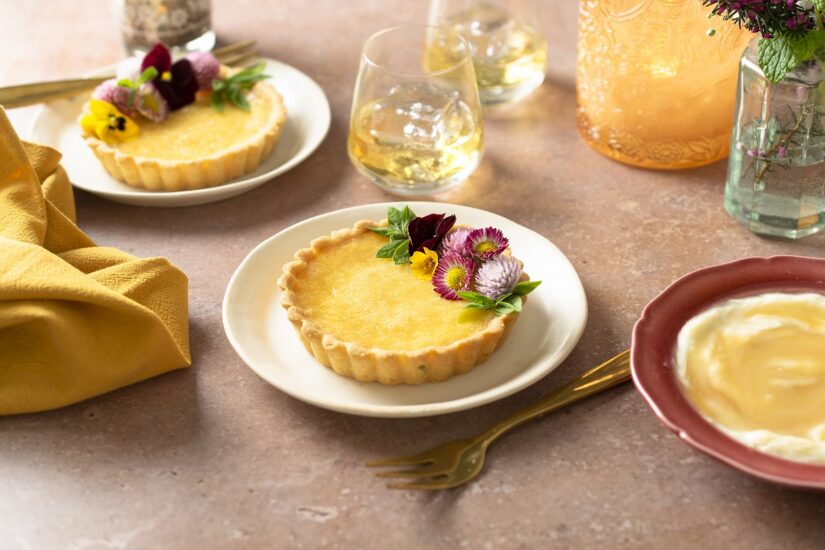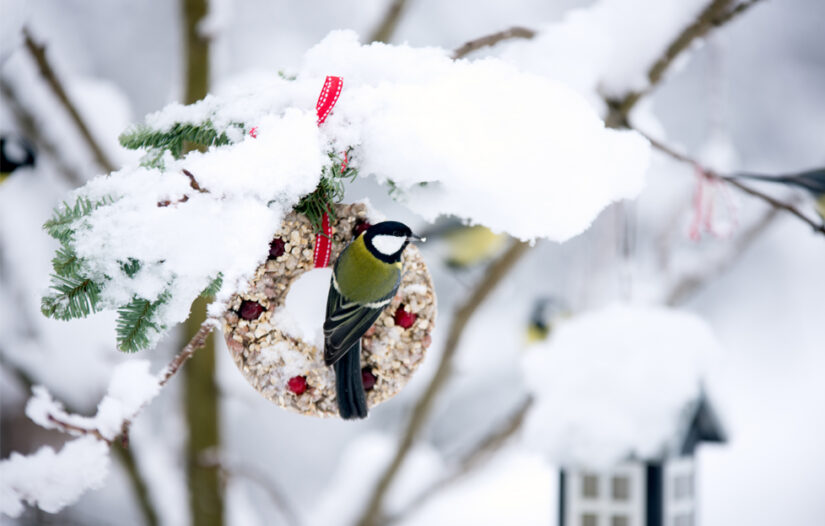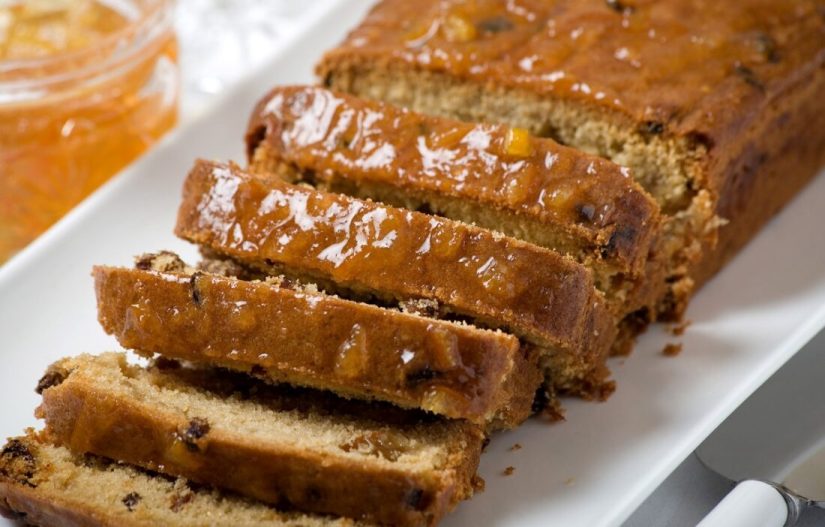 Shutterstock / Artush©
Shutterstock / Artush©The cold snap of winter means steaming roast dinners and hot cocoa are back on the menu — and you can share the festive celebrations by feeding birds outside your window!
Many of the foods we eat are also big hits with the birds. This is especially true during the colder months when there are fewer natural food sources available and they need extra calories to stay warm.
Try sprinkling some of these treats on your bird table and see what turns up. Maybe your local robin, or a swirl of starlings? You may even be lucky enough to see a winter migrant bird such as a redwing sampling your offerings.
Some ideas for festive leftovers to feed the birds:
- Cheese — mild grated cheese is a classic hit with robins, dunnocks, blackbirds and song thrushes.
- Unsalted bacon rind — chopping it up means a lot of birds will be able to have a nibble. Magpies and crows are liable to fly off with the whole lump if not well-anchored! Make sure there’s no salt in it as it is toxic to birds.
- Ripe or bruised apples and pears — thrushes, tits and starlings are big fans.
- Pastry — uncooked or cooked, either is good as long as it’s made with real fats.
- Dried fruit — raisins, sultanas and currants are favourites with blackbirds, song thrushes and robins. They can be dangerous to dogs and cats so this is one to avoid if you have pets in the area.
Not everything we eat is good for birds, however. Here are some foods to avoid:
- Anything with salt — salt is toxic to birds, so make sure to keep it off your bird table and don’t put salt in your bird baths to keep it ice-free.
- Cooking fat — leftover fat from your Sunday roast could smear onto birds’ feathers and ruin their waterproofing and insulating qualities. It can be great for a stock though!
- Cooked porridge oats — they are glutinous and can harden around a bird’s beak.
- Milk — birds can’t digest milk so it can make them seriously ill.
- Dried coconut — it can swell up in their stomach and make them sick.
Another great option is packaged food! Sparrows, tits and finches, for example, will all visit feeders containing nuts, fat or seed mixtures.
The insect-eaters, such as dunnocks, robins, starlings, and wrens, prefer mealworms. Suet-based products are an all-round crowd-pleaser with their high calories providing a boost for your birds through cold nights.
And remember, it’s not just about feeding birds. There’s also the drink side of the meal!
Water is key for birds, both to drink and to clean their feathers so they’re in tip-top condition to fly and keep themselves warm.
Birds can find it harder to find water in the winter, however, as ponds start to freeze.
So they’ll always appreciate a bird bath; even a dustbin lid with some stones at the bottom for grip will do the job!
If you find the water keeps freezing, try floating a ping pong ball on the surface – the slightest gust of wind will keep the ball moving and stop the water turning to ice.
You can also help the birds in your neighbourhood by taking part in the Big Garden Birdwatch.
Every year for the past four decades the RSPB has asked people to look out their window or head to their local park and let us know what birds they see over the course of an hour.
This helps us to keep track of how garden birds are faring, and last year a record-breaking one million people joined in.
You can take part on the 28, 29, or 30 January 2022.
Click here for your FREE Big Garden Birdwatch guide, which includes a RSPB shop voucher and advice on how to help you attract wildlife to your garden, text BIRD to 70030.
Registration opens 8 December 2021.




